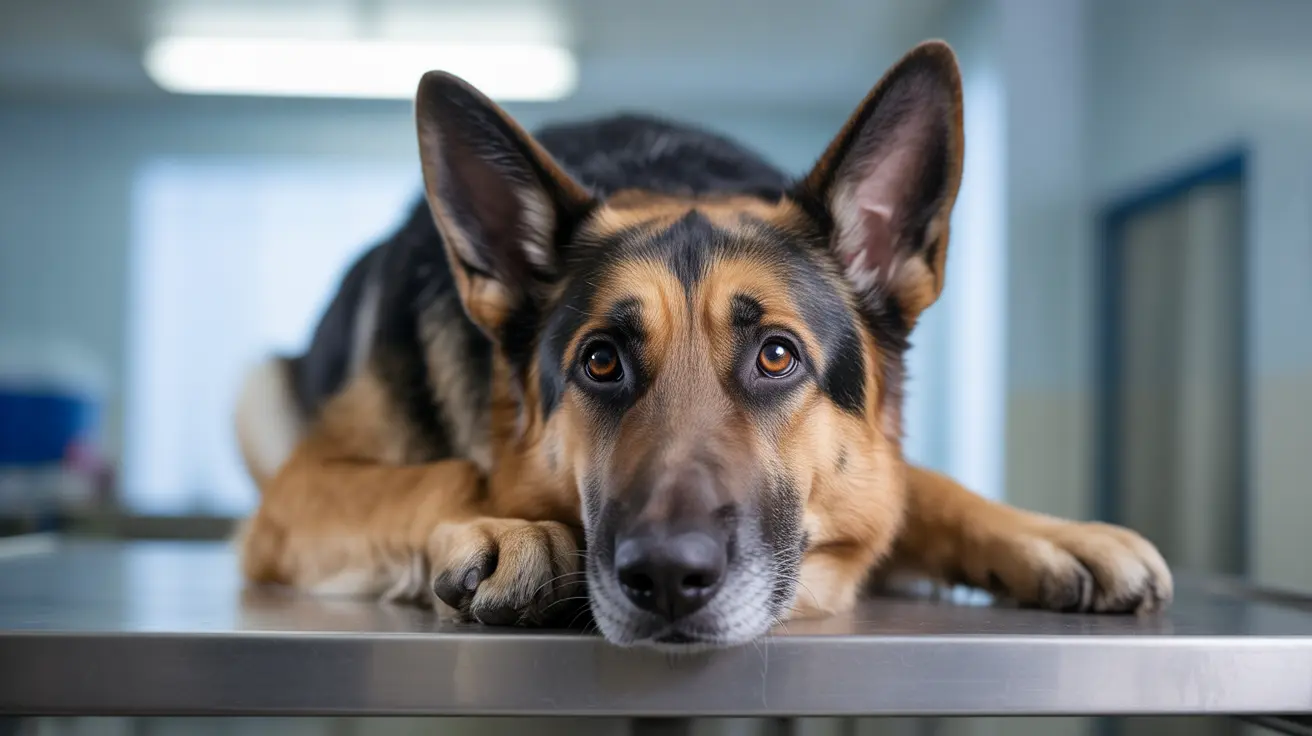If you've noticed swelling in your dog's cheek area, you might be dealing with a swollen salivary gland or mucocele. This condition, while concerning for pet owners, is relatively common in dogs and typically treatable when caught early. Understanding the causes, symptoms, and treatment options is crucial for ensuring your pet's health and comfort.
In this comprehensive guide, we'll explore everything you need to know about dog swollen cheek glands, from identifying early warning signs to understanding treatment options and prevention strategies.
Understanding Salivary Gland Swelling in Dogs
Salivary gland swelling, also known as a mucocele or sialocele, occurs when saliva leaks from damaged salivary glands or ducts into surrounding tissues. Dogs have several pairs of salivary glands, including the mandibular, sublingual, parotid, and zygomatic glands, all of which can potentially develop swelling.
German Shepherds and miniature poodles show a higher predisposition to this condition, though it can affect any breed regardless of age or size.
Common Causes of Cheek Gland Swelling
Several factors can lead to swollen cheek glands in dogs:
- Trauma from bite wounds or rough play
- Injury from choke collars
- Damage from chewing on sharp objects
- Salivary duct blockages
- Bacterial or viral infections
- Dental disease or abscesses
Recognizing the Symptoms
Early detection of salivary gland issues is crucial for successful treatment. Watch for these signs:
- Visible swelling on the cheek or neck area
- Soft, fluid-filled lumps
- Excessive drooling
- Difficulty eating or swallowing
- Blood-tinged saliva
- Changes in behavior or appetite
Diagnosis and Veterinary Assessment
Veterinarians use several methods to diagnose cheek gland swelling:
- Physical examination
- Fine needle aspiration
- Imaging tests (ultrasound, X-rays, or CT scans)
- Blood work to check for underlying conditions
- Bacterial culture if infection is suspected
Treatment Options and Recovery
Treatment typically involves:
- Surgical removal of affected glands (most common and effective)
- Antibiotics for infection cases
- Anti-inflammatory medications
- Post-operative care and monitoring
- Dietary modifications during recovery
Prevention and Long-term Care
While not all cases are preventable, these steps can help reduce risk:
- Avoid using choke collars
- Regular dental check-ups
- Supervision during play
- Proper toy selection
- Immediate attention to any facial injuries
Frequently Asked Questions
What causes a dog's cheek gland to become swollen, and which breeds are most at risk?
Dog cheek gland swelling is primarily caused by trauma, infection, or blockage of the salivary glands. German Shepherds and miniature poodles are most at risk, though any breed can develop this condition.
How can I tell if my dog's swollen cheek gland is a salivary mucocele or something more serious?
A salivary mucocele typically presents as a soft, painless swelling. However, only a veterinarian can definitively diagnose whether the swelling is a mucocele or something more serious through physical examination and diagnostic tests.
What are the common symptoms and complications of salivary gland swelling in dogs?
Common symptoms include visible facial swelling, excessive drooling, difficulty eating, and sometimes blood-tinged saliva. Complications can include difficulty breathing, infection, and eating problems if left untreated.
How do veterinarians diagnose and treat swollen cheek glands or salivary mucoceles in dogs?
Veterinarians use physical examination, needle aspiration, and imaging tests for diagnosis. Treatment typically involves surgical removal of the affected gland, sometimes combined with antibiotics or anti-inflammatory medications.
Can I prevent my dog from developing a swollen salivary gland, and what care should I provide if swelling occurs?
While not entirely preventable, you can reduce risk by avoiding choke collars, supervising play, and maintaining good dental health. If swelling occurs, seek immediate veterinary care and follow post-treatment care instructions carefully.
Conclusion
Understanding dog swollen cheek glands is crucial for early detection and successful treatment. While the condition can be concerning, most cases respond well to proper veterinary care. Always consult your veterinarian if you notice any unusual swelling in your dog's facial area, as early intervention typically leads to the best outcomes.






